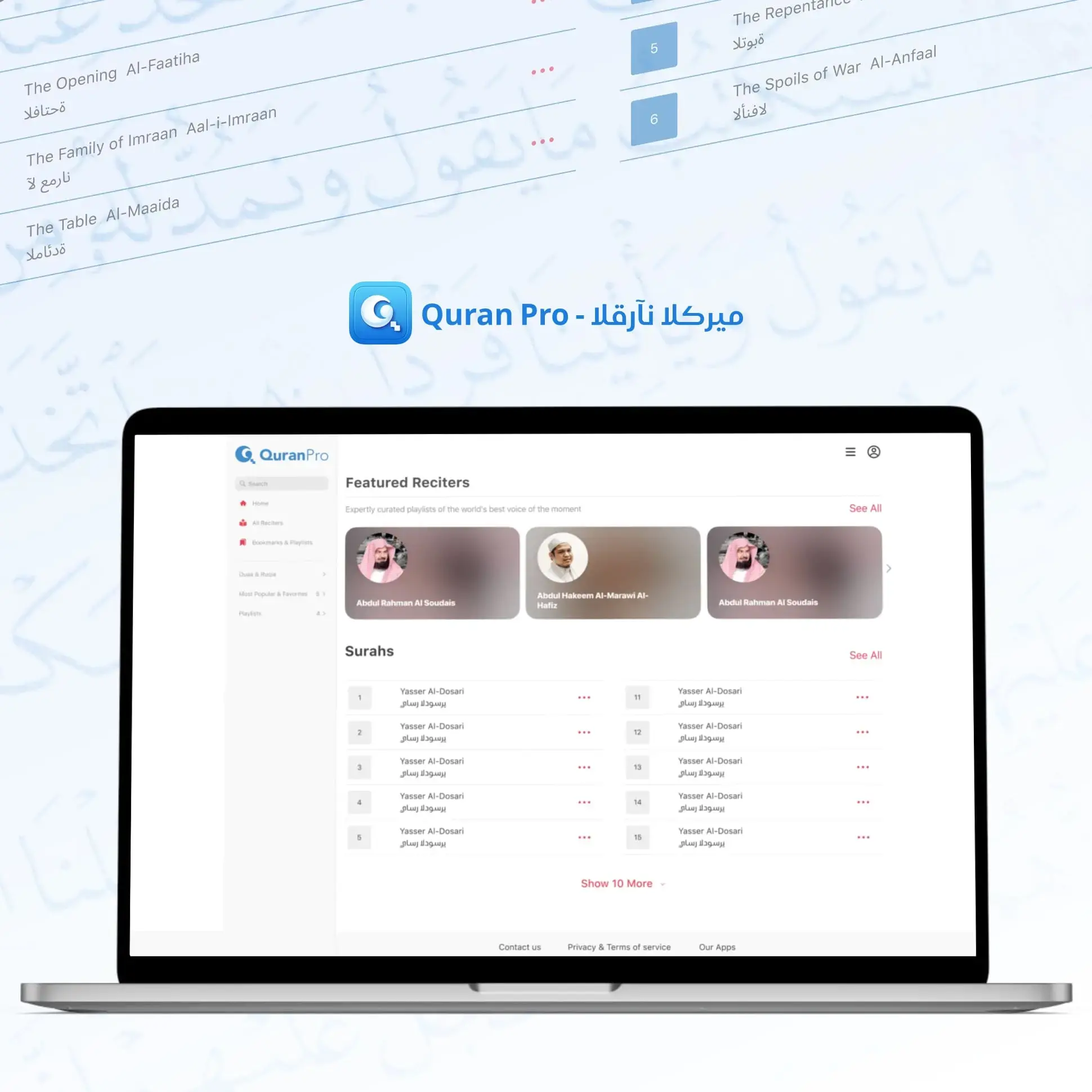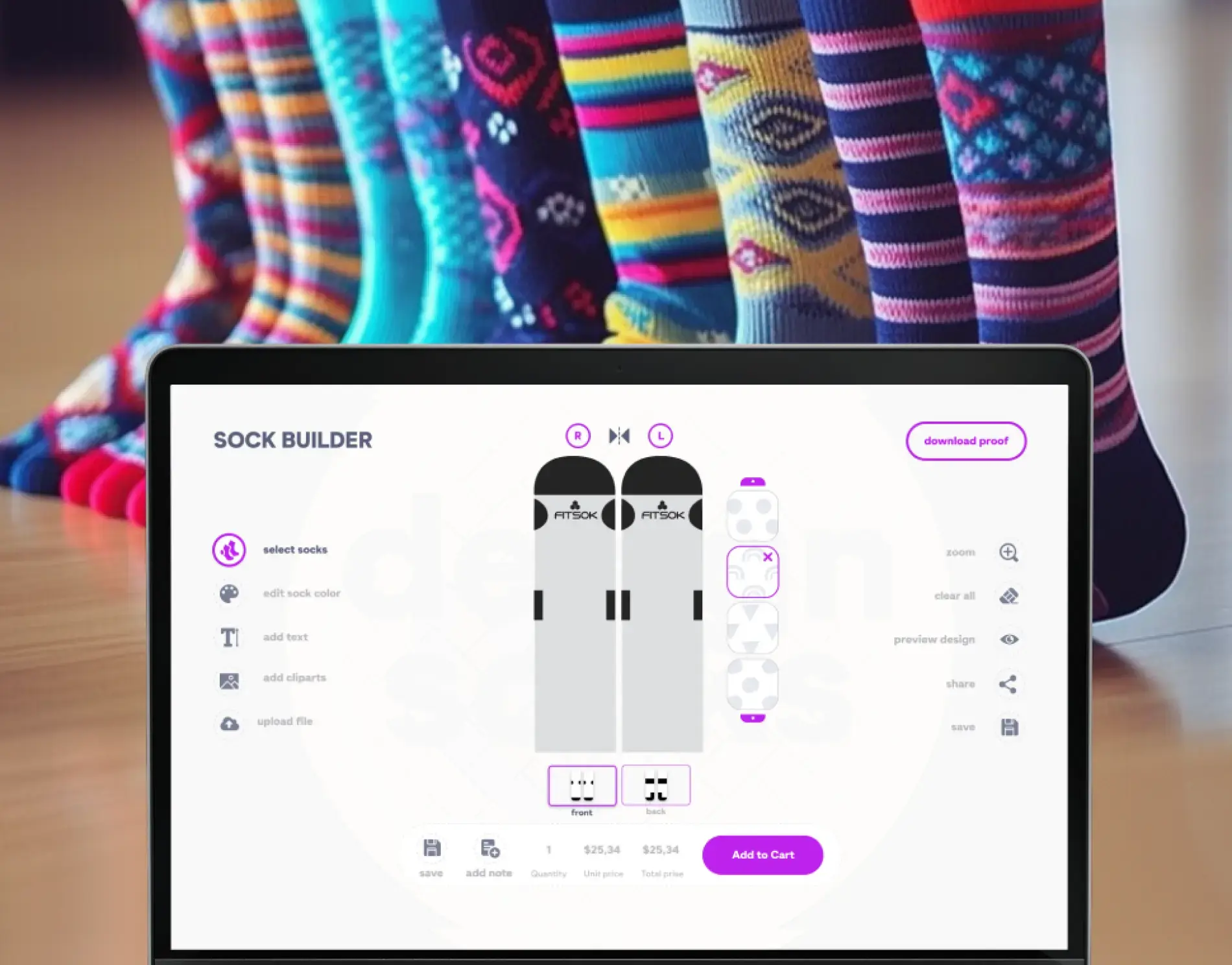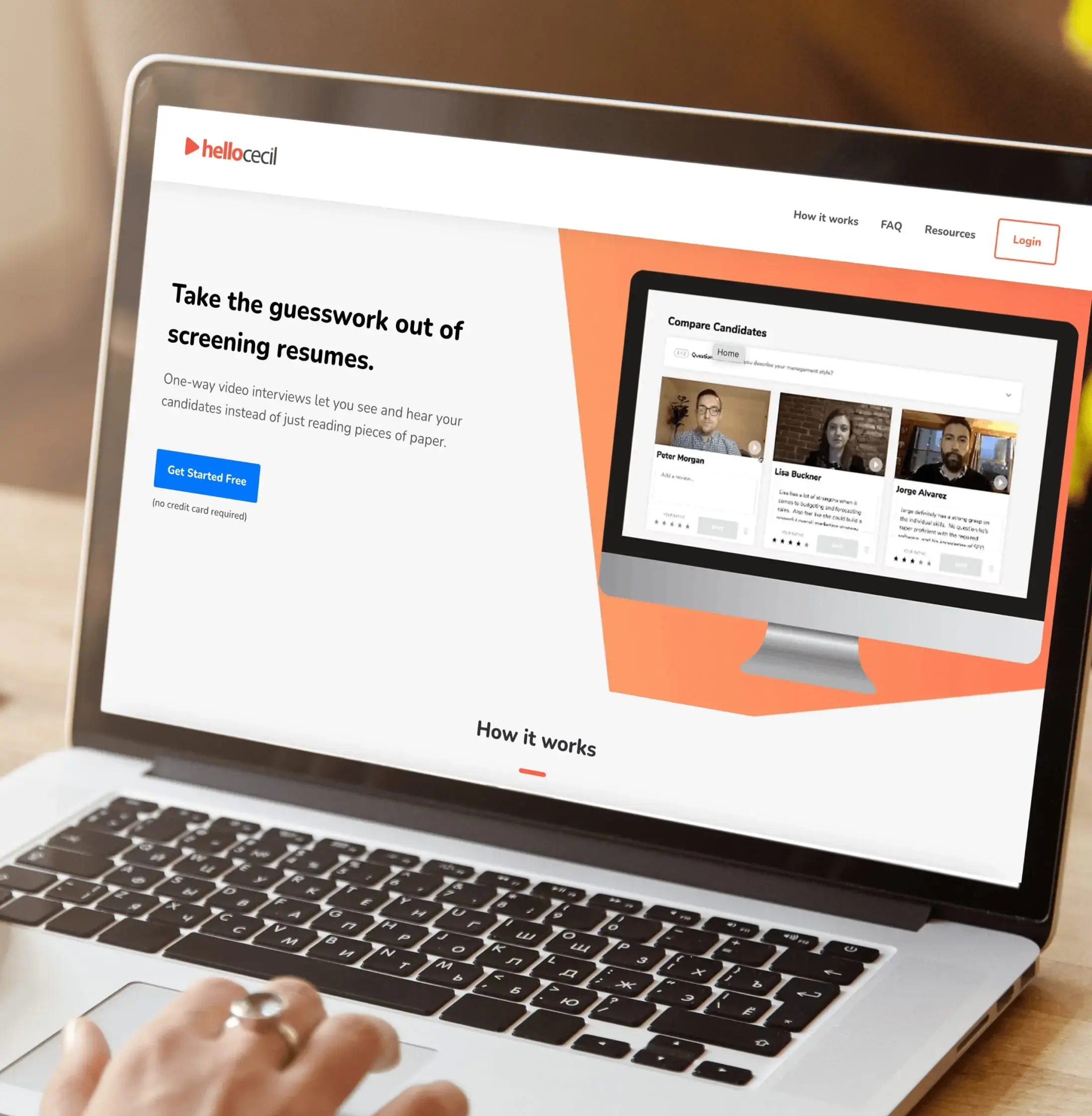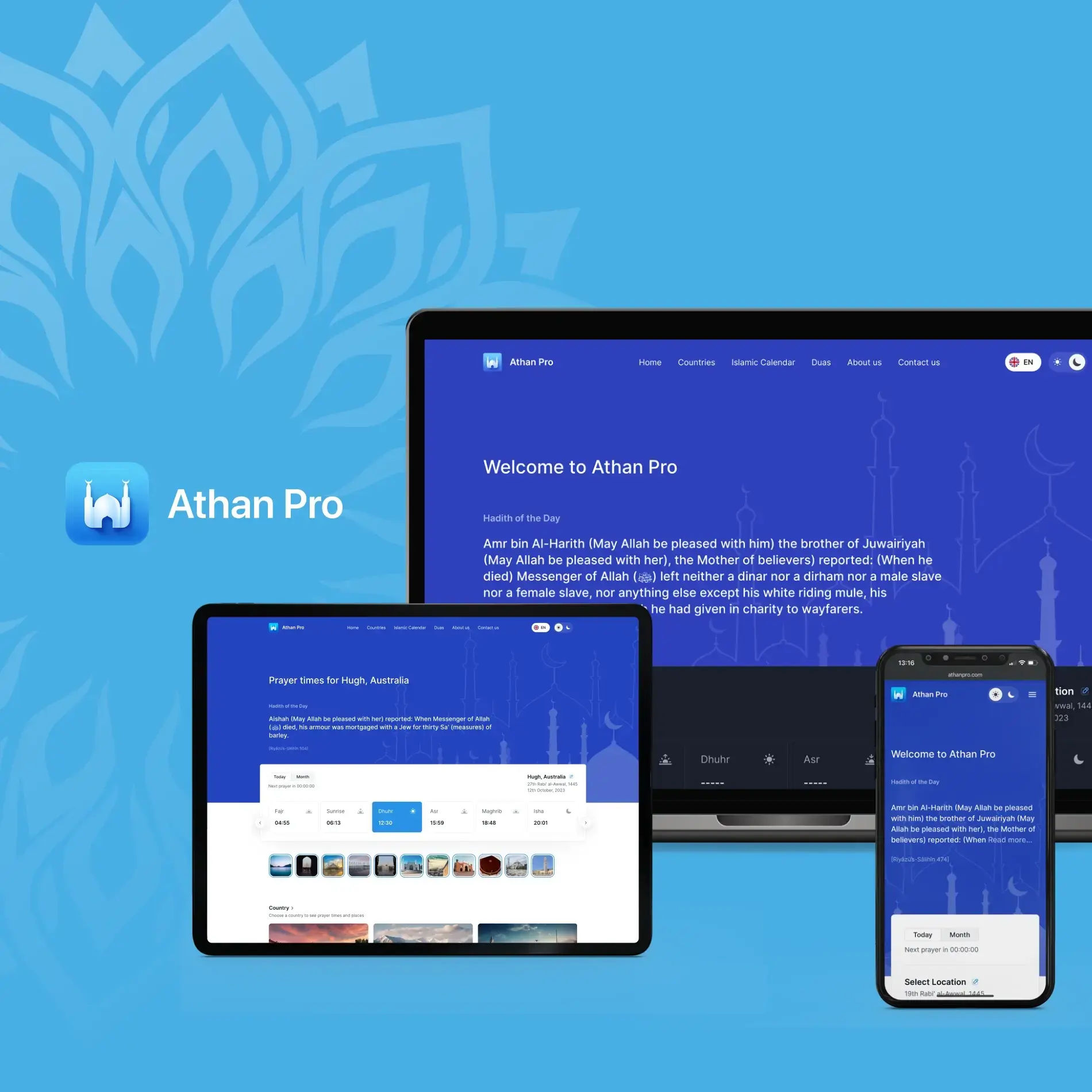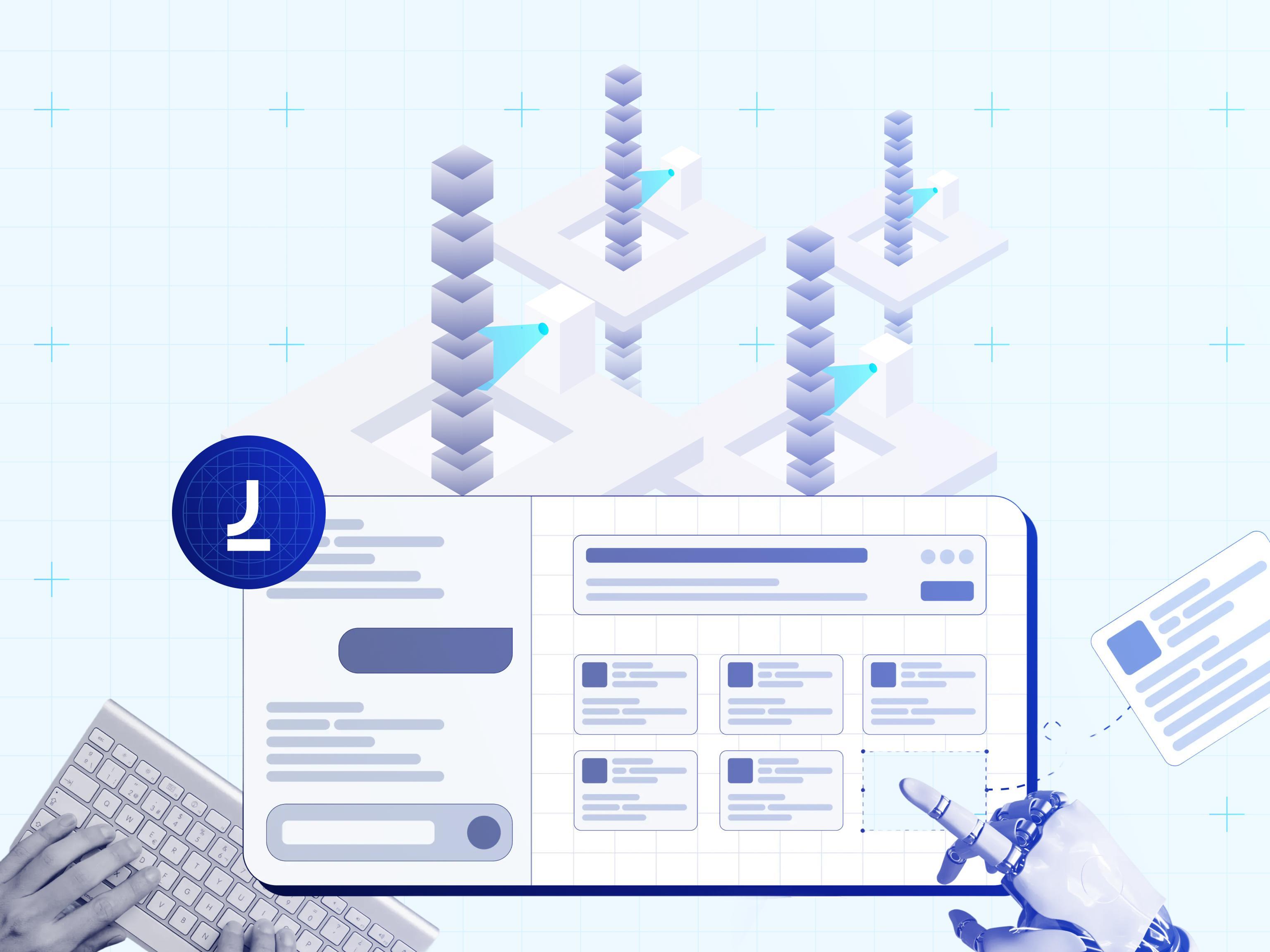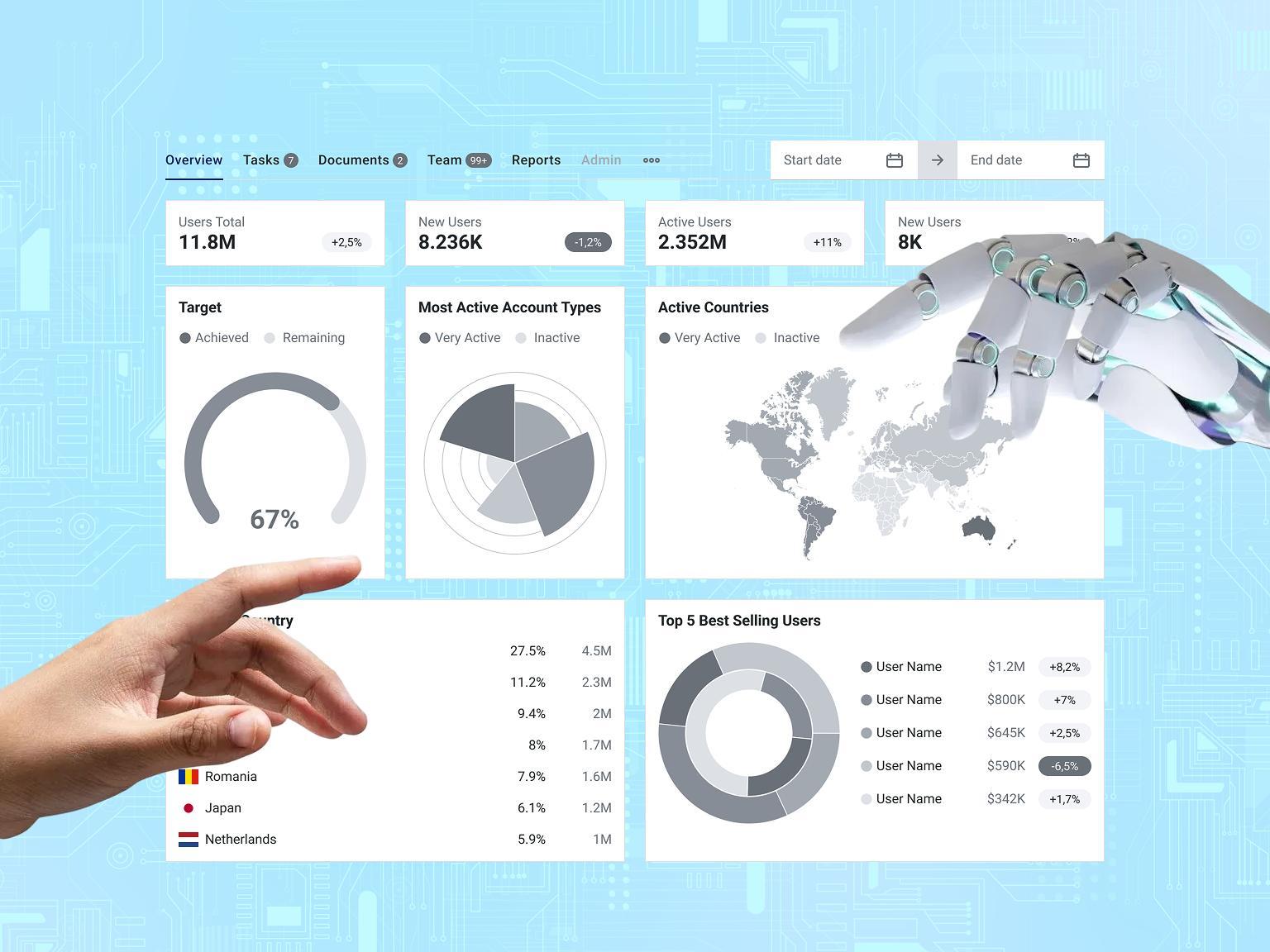Chronic conditions represent a significant healthcare challenge worldwide, accounting for substantial illness, disability, and healthcare costs. In the United States, they are also the leading drivers of the $4.5 trillion in annual healthcare expenditures.
Managing chronic conditions efficiently is crucial, as traditional methods—relying on periodic visits to healthcare providers—often lead to fragmented care. Chronic Care Management (CCM) offers a solution, providing structured, ongoing care coordination for patients with chronic conditions.
Recent technological advancements have transformed CCM, allowing healthcare providers to monitor patients remotely and respond to changes in real-time. This approach not only increases patient engagement and improves outcomes but also reduces the burden on healthcare systems.

In this article, we discuss the importance of a robust technological stack for organizing CCM, based on our JetBase case study. Keep reading for valuable insights and key details.
The Importance of Technology in Chronic Care Management
In recent decades, digital health solutions have steadily advanced alongside the rise of the internet and digital infrastructure. Today, "digital health" encompasses technologies that capture data electronically and support the healthcare ecosystem’s technical and communication frameworks.

These digital health advancements are redefining healthcare delivery, diagnostics, and patient engagement. Technologies such as cloud computing, artificial intelligence, machine learning, telehealth, and mobile health applications are proving essential for disease self-management, healthcare delivery, and research. They offer earlier diagnoses, timely interventions, improved outcomes, and more active patient participation (McGinnis et al., 2021).
Despite their transformative potential, these technologies present certain challenges, including:
- Limited access in some regions
- Privacy and security concerns
- A lack of user-friendly design that meets the needs of diverse patient groups
Addressing these challenges is crucial to maximizing their impact in managing chronic conditions.
How AWS Addresses the Needs of Chronic Care Management and Digital Health Solutions
As healthcare continues to evolve with digital solutions, the importance of reliable and scalable infrastructure becomes paramount. AWS offers a robust suite of features tailored to meet the demanding needs of health applications, ensuring scalability, security, cost-efficiency, and seamless patient care.
- Scalability: AWS’s scalable infrastructure easily manages the increasing flow of patient data and user demand, adapting seamlessly as health apps grow. This flexibility is vital for apps seeking to expand without compromising performance.
- Data Security & Compliance: AWS’s HIPAA-compliant services meet rigorous data protection standards. Its advanced security features ensure sensitive health information is stored, managed, and transferred securely, ensuring patient and provider peace of mind.
- Cost-Effectiveness: AWS’s pay-as-you-go pricing allows health apps to scale their services cost-effectively, helping them manage costs without large upfront investments. This model enables developers to focus on patient care rather than infrastructure.
- Reliability: With AWS’s global infrastructure, health apps benefit from reliable uptime and consistent performance. This ensures health apps remain accessible worldwide, which is crucial for patient-centered care.
Key AWS Services for Healthcare App Development
AWS provides a range of specialized services to enhance the performance, functionality, and security of health applications. Key AWS services include:
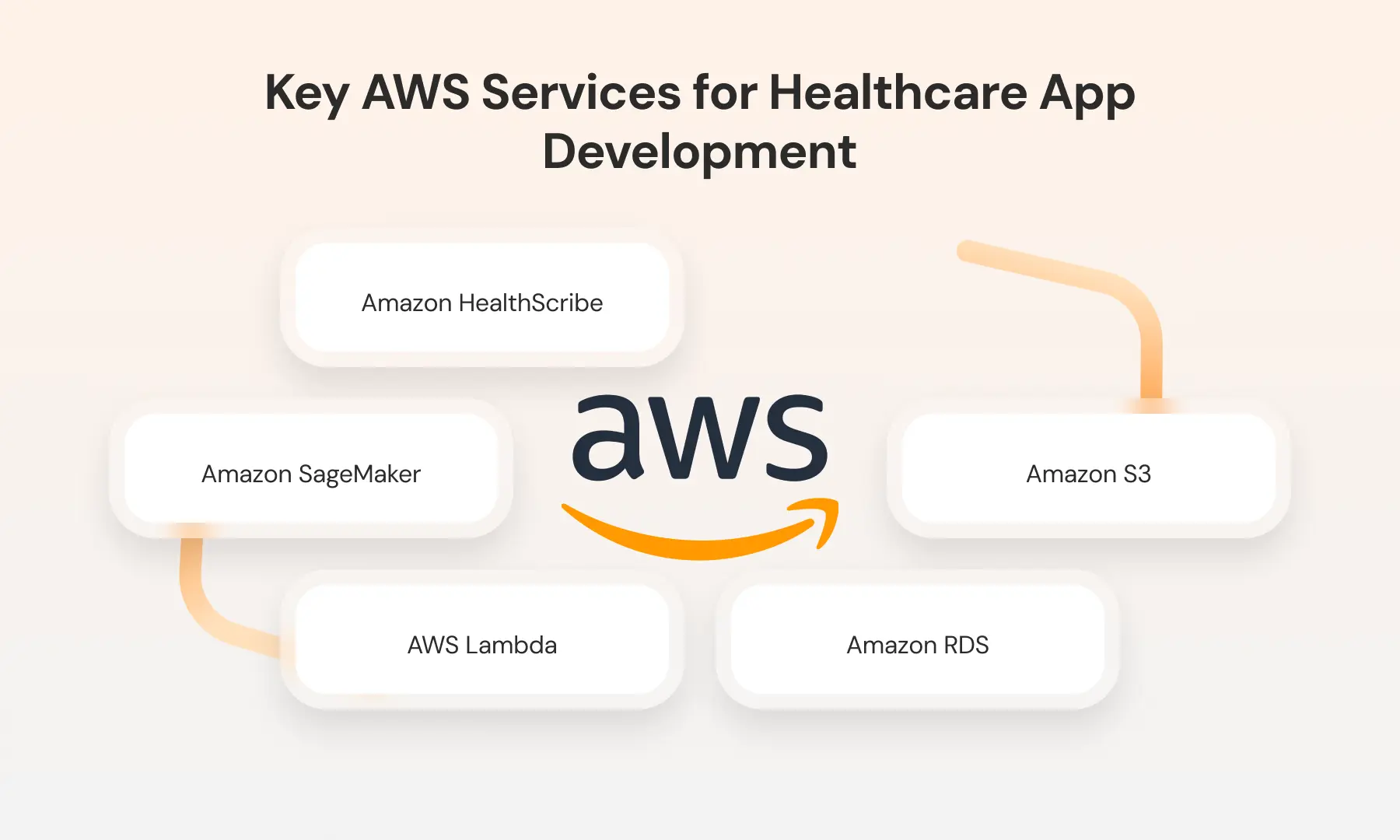
- AWS Lambda: A serverless service that automates data processes like patient monitoring, handling backend functions efficiently without server management. It’s ideal for real-time health tracking and automated alerts.
- Amazon RDS (Relational Database Service): A managed, high-performance database service that securely stores patient data, simplifying the management of medical information.
- Amazon SageMaker: A machine learning platform supporting ML model creation and deployment, enabling health apps to deliver personalized disease management.
- Amazon S3: A secure, scalable storage solution for handling large volumes of health data, such as medical records, with robust security features to protect sensitive information.
- Amazon HealthScribe: An AI-powered healthcare service, Amazon HealthScribe processes and extracts meaningful information from unstructured clinical documentation, such as patient conversations and notes. It enhances diagnostic accuracy and supports more personalized patient care by providing detailed clinical insights.
These services provide a secure, scalable, and efficient foundation for modern health applications.
Benefits of AWS-Powered Health Apps for Patients and Providers — JetBase Case Study
Our current project—a web and mobile app—demonstrates the benefits of an AWS-powered healthcare platform. This app offers a clinical environment where doctors can monitor patient health indicators in real-time and predict health changes using AI. Additionally, the platform tracks doctor activities, manages billing, and stores data reports within the system.
For a closer look at how this project leverages AWS to enhance chronic care management, you can read more about the case here: JetBase Healthcare Web App Case Study.
Our platform includes both Remote Patient Monitoring (RPM) and Chronic Care Management (CCM) dashboards, each offering distinct functionalities:
| Feature | RPM | CCM |
|---|---|---|
| Patient Volume | 50,000 - 60,000 patients | 5,000 - 7,000 patients |
| Core Services | Real-time health readings | Patient interactions, health history |
| Monitoring Focus | Vital signs and symptoms | Treatment history and conditions with ICD codes |
| Patient Interaction | Data-focused, lower interaction | Higher interaction, ongoing care coordination |
| Shared Patient Base | Some patients may use both RPM and CCM services | Some patients may use both RPM and CCM services |
In our CCM module, all patient data is consolidated into a user-friendly dashboard accessible to doctors. Here’s how it works:
- Patients complete an intake form and risk assessment questionnaires, which generate risk scores that inform next steps.
- The system provides a comprehensive view of treatment history, allergies, and health goals, with conditions coded automatically using ICD codes.
- Doctors can view prescribed medications, reminders synced to patients’ mobile apps, communication options, and upcoming appointments.
This integrated approach simplifies doctor-patient interactions and enhances care quality.
Why We Chose AWS for Chronic Care Management
AWS offers several advantages that make it ideal for a CCM platform:
- Cost Efficiency Through Serverless Architecture: AWS Lambda’s serverless model optimizes costs by charging only when services are in use, ideal for the RPM and CCM modules. Amazon Aurora Serverless similarly charges only for accessed data, adding further cost-effectiveness.
- Extensive Ready-to-Use Services: AWS’s pre-built services, such as Amazon RDS, allow rapid deployment of critical features without custom infrastructure, supporting the platform’s scalability as patient demand grows.
- Regulatory Compliance and Data Security: AWS’s HIPAA-compliant infrastructure supports stringent data protection. Features like selective data visibility enhance security while simplifying compliance.
- Reliability and High Availability: AWS’s managed infrastructure, including S3 storage, ensures 24/7 access to patient data, minimizing risks associated with downtime or data loss.
AWS’s robust infrastructure supports a compliant, efficient, and highly available chronic care management solution, allowing our team to focus on patient outcomes.
The Future of Chronic Care Management with AWS
As the healthcare landscape continues to evolve, AWS is playing a pivotal role in shaping the future of chronic care management. Leveraging cutting-edge technologies, AWS provides a foundation that supports predictive healthcare, expands remote monitoring, and enables patient-centered care.
These innovations promise to enhance the effectiveness and accessibility of chronic care management. Here's how AWS is contributing to this transformative shift:
- Predictive Healthcare: AWS’s machine learning tools support predictive healthcare by forecasting disease progression based on patient data, enabling preventive measures for chronic conditions like diabetes and heart disease.
- Expansion of Remote Monitoring: AWS’s IoT capabilities allow secure data collection from connected health devices, enabling healthcare providers to monitor patients remotely and adjust treatment as needed.
- Patient-Centered Care: AWS-powered applications enable personalized care plans, medication reminders, and alerts based on individual patient trends, enhancing patient engagement and adherence to treatments.
AWS provides a secure, adaptable, and compliant foundation for healthcare technology, making chronic care management more accessible and effective.
To Sum Up
AWS is playing a transformative role in chronic care management (CCM), offering scalable, secure, and cost-efficient solutions that enhance healthcare delivery. The platform's ability to support predictive healthcare, remote patient monitoring (RPM), and patient-centered care has proven invaluable in managing chronic conditions.
With the integration of advanced machine learning tools, secure IoT capabilities, and a wealth of pre-built services, AWS is empowering healthcare providers to deliver more personalized, data-driven care.
By leveraging AWS's extensive infrastructure, our CCM platform streamlines care coordination, improves patient outcomes, and makes healthcare more accessible. Key features, such as real-time health tracking, automated alerts, and personalized treatment plans, allow for ongoing, proactive management of chronic conditions, reducing the need for costly in-person visits and minimizing the risk of hospital readmissions.
Additionally, the AWS-powered system ensures compliance with stringent data protection standards, providing peace of mind to both patients and healthcare providers.
In conclusion, AWS's reliable infrastructure and innovative services are setting a new standard for chronic care management. These technological advancements are not only making CCM more efficient but are also improving the overall healthcare experience for both patients and providers. To explore how our CCM platform can benefit your healthcare organization, visit our website and reach out to us for more information.




